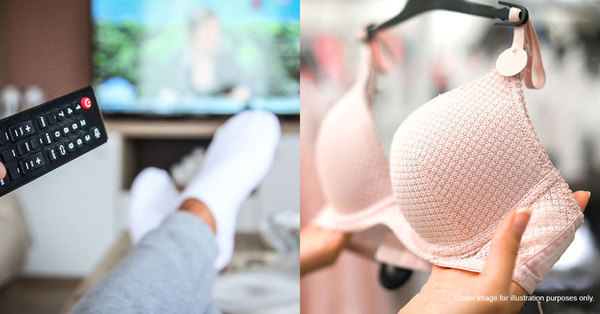Subscribe to our Telegram channel for our latest stories and breaking news.
The Film Censorship Board of Malaysia (LPF) has issued letters to instruct two local broadcasters to stop displaying male and female undergarments on their home shopping networks
In a report published by Malay Mail today, 10 September, it is learnt that the board — that is under the Ministry of Home Affairs’ (MOHA) purview — finds the display of innerwear during the shows indecent and offensive even though they were not worn by models.
Hence, LPF said that the television broadcasters have violated its guidelines and code of conduct.
“The ministry is of the view that although the advertisement do not show undergarments worn live by a model and do not involve any indecent visual displays, advertising ‘undergarments’ will still offend the community, especially those related to race, religion, gender, and age,” read the letter dated 3 September.
“Furthermore, the requirement to preserve manners, decency, and the sensitivities of a multi-ethnic and multi-religious society in Malaysia is of utmost importance.”
“Therefore, this ministry is of the view that the aforementioned content advertising innerwear is inappropriate to be shown for general viewing… and all broadcasts similar like this should be discontinued immediately.”
Photo for illustration purposes only.
Image via Alex Robinson (Pinterest)
A check by SAYS at two of the most popular local home shopping networks found that male briefs and trunks, as well as female underpants and body shapers, are frequent products sold on air
The shows are conducted in both Bahasa Melayu and Chinese. Some were aired as far back as March 2019, while others were aired as recently as June 2021.
In the shows, the hosts and models do not put on the products, except for corsets and body shapers but they are worn under or above their outfits.
The products are placed on racks, mannequins, and sometimes, the hosts hold them up to demonstrate the stretchiness or to showcase their sizes.
Photo for illustration purposes only.
Image via AliExpress
In another letter dated 24 August, the censorship board dismissed the appeal filed by one of the broadcasters
The letter was sent to WOWSHOP — a home shopping network under Media Prima — and was signed by LPF chairman Datuk Azizan Ariffin. SAYS had obtained the letter for this reporting.
In the letter, LPF said although it acknowledged the views put forward by content regulators the Communications and Multimedia Content Forum (CMCF) and Malaysian Communications and Multimedia Commission (MCMC), it insisted that such content should not be aired.
MCMC, much like LPF, is a government department that has the authority to take down any content violating the Communications and Multimedia Act 1998, but the power that the department has mostly revolves around online platforms.
LPF is empowered by the Film Censorship Act 2002.
“Taking into account the interests of all parties in considering this appeal, LPF still sticks by the Film Censorship Guidelines 2010 (GPPF 2010) Article 1 of Section III (regarding) film advertisements, which states that film advertisements or any form of the message presented which promotes a branded organisation, product, or service must be ethical,” the letter read.
The letter also mentioned that the display of undergarments is offensive and should be avoided to take care of the sensitivities of a multi-religious and multi-cultural audience.
Hence, LPF said it maintained its decision communicated on 16 November 2020 that WOWSHOP or other Media Prima channels are prohibited from selling undergarments on air.
LPF chairman Datuk Azizan Ariffin.
Image via Berita Harian
Speaking to the Malay Mail, LPF said one of the reasons behind its directive is because the shows are easily accessible by the entire household, including children, as they are broadcasted on television
It also reiterated the regulations within GPPF 2010, empowered by the Film Censorship Act 2002, and stated that the content that the broadcasters air must maintain good manners and decency while balancing the sensitivities of a diverse society.
“Both television stations involved are aware of all the conditions that have to be adhered to under the Film Censorship Act 2002 Exemption Order issued by the Ministry of Home Affairs,” it told Malay Mail.
LPF added that the companies have since complied with the directive and removed the segments.
“But, if this content is shown on other online platforms, it is no longer subjected to the Film Censorship Act 2002,” it continued.
As of this writing, videos of the programmes selling undergarments products can still be found on YouTube and Facebook.



